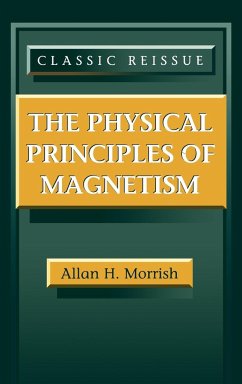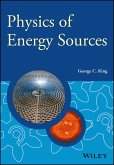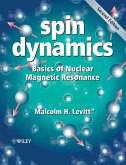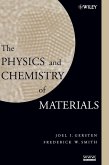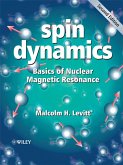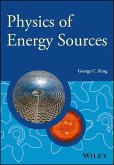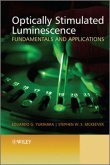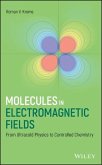""The Physical Principles of Magnetism . . . is such a classic - a comprehensive introduction to all aspects of magnetism . . . The corrected reissue is a welcome addition to this much-needed archival series. Dr. Morrish presents an excellent introduction to the physics and mathematics of magnetism without oversimplification . . . This respected and timeless book clearly elucidates these principles."" - Edward Della Torre, The George Washington University, President of the IEEE Magnetics Society
The IEEE Press is pleased to reissue this essential book for understanding the basis of modern magnetic materials. Diamagnetism, paramagnetism, ferromagnetism, ferrimagnetism, and antiferromagnetism are covered in an integrated manner - unifying subject matter from physics, chemistry, metallurgy, and engineering. Magnetic phenomena are discussed both from an experimental and theoretical point of view. The underlying physical principles are presented first, followed by macroscopic or microscopic theories. Although quantum mechanical theories are given, a phenomenological approach is emphasized. More than half the book is devoted to a discussion of strongly coupled dipole systems, where the molecular field theory is emphasized.
THE PHYSICAL PRINCIPLES OF MAGNETISM is a classic "must read" for anyone working in the magnetics, electromagnetics, computing, and communications fields.
About the Author
Allan Henry Morrish is a distinguished professor of physics at the University of Manitoba, Canada. He received a B.Sc. degree from the University of Manitoba in 1943, an M.A. from the University of Toronto in 1946, and a Ph.D. from the University of Chicago in 1949, specializing in nuclear physics. From 1953 to 1964, Dr. Morrish was with the Department of Electrical Engineering at the University of Minnesota at Minneapolis, where he held the rank of professor from 1959.
During 1974-1975, Dr. Morrish was president of the Canadian Association of Physicists and in 1977 he was awarded their gold medal for achievements in physics. He has written over 250 papers and has served on many national and international committees. A fellow of the Royal Society of Canada and a Guggenheim fellow (1957-1958), Dr. Morrish is also a fellow of the Institute of Physics (U.K.), as well as a former fellow of the American Physical Society."
Sponsored by:
IEEE Magnetics Society
Hinweis: Dieser Artikel kann nur an eine deutsche Lieferadresse ausgeliefert werden.
The IEEE Press is pleased to reissue this essential book for understanding the basis of modern magnetic materials. Diamagnetism, paramagnetism, ferromagnetism, ferrimagnetism, and antiferromagnetism are covered in an integrated manner - unifying subject matter from physics, chemistry, metallurgy, and engineering. Magnetic phenomena are discussed both from an experimental and theoretical point of view. The underlying physical principles are presented first, followed by macroscopic or microscopic theories. Although quantum mechanical theories are given, a phenomenological approach is emphasized. More than half the book is devoted to a discussion of strongly coupled dipole systems, where the molecular field theory is emphasized.
THE PHYSICAL PRINCIPLES OF MAGNETISM is a classic "must read" for anyone working in the magnetics, electromagnetics, computing, and communications fields.
About the Author
Allan Henry Morrish is a distinguished professor of physics at the University of Manitoba, Canada. He received a B.Sc. degree from the University of Manitoba in 1943, an M.A. from the University of Toronto in 1946, and a Ph.D. from the University of Chicago in 1949, specializing in nuclear physics. From 1953 to 1964, Dr. Morrish was with the Department of Electrical Engineering at the University of Minnesota at Minneapolis, where he held the rank of professor from 1959.
During 1974-1975, Dr. Morrish was president of the Canadian Association of Physicists and in 1977 he was awarded their gold medal for achievements in physics. He has written over 250 papers and has served on many national and international committees. A fellow of the Royal Society of Canada and a Guggenheim fellow (1957-1958), Dr. Morrish is also a fellow of the Institute of Physics (U.K.), as well as a former fellow of the American Physical Society."
Sponsored by:
IEEE Magnetics Society
Hinweis: Dieser Artikel kann nur an eine deutsche Lieferadresse ausgeliefert werden.

